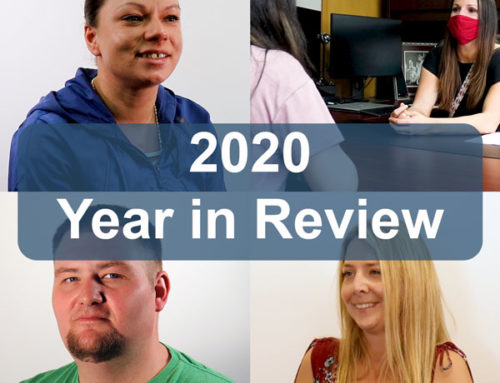In 2012, Washington State voters approved an initiative (I-502) that legalized the use of Marijuana. Since this occurred, individuals have asked: Why are asking about my use of marijuana? This question may be elicited from the substance use history on the assessment. While Therapeutic Health Services recognizes the implementation of I-502, there are still issues that arise from continued cannabis use. This is specific to treatment for substance use and the question for those who carry a medical marijuana card.
Understanding the law and the effects of using marijuana
The Washington State Liquor and Cannabis Board provides a fact sheet online regarding the implementation and law of I-502. It also provides information about the nature of and effects from using Marijuana. Three of the more important facts of this are:
- Only adults, age 21 and older, are able to purchase and possess marijuana
- Marijuana is illegal to consume in public places, or in view of the public
- It is illegal to operate a motor vehicle while under the influence. If an individual tests positive for 5 nanograms or more of active THC, they may have significant legal issues.
Another important factor is the scientific research that shows marijuana is addictive. Based on this research, about nine percent of users become addicted to marijuana. This number increases among those who start young (to 17 percent) among people who use marijuana daily (to 25-50 percent).
Research also shows that while the short term effect of the “euphoria” one feels, there is also an impact where an individual may experience:
• Slower reaction
• Problematic with thinking, learning, and memory
• Confusion, anxiety, panic, and/or paranoia
• Increase in heart rate, blood pressure, and appetite (hunger)
• Decrease interest in activities
• And, on rare occasions, psychosis (specifically among adolescents who are heavy and/or chronic users)
We also recognize that marijuana use by women who are pregnant and/or breastfeeding may pose a risk to their pregnancy and/or infant. One of the main factors impacting the health and well-being of the unborn child is how carbon-monoxide is passed from the mother to child. This disrupts the oxygen supply and may result in growth issues, premature birth, miscarriage, or stillbirth. Other research has shown that children may be born with low birth weight, certain birth defects and symptoms. These are similar to children with Fetal Alcohol Syndrome.
There are additional information on the nature of marijuana and its effects. The National Institute on Drug Abuse published both articles. The first is titled – How Does Marijuana Produce its Effects? The second article is titled – What are Marijuana Effects?
Common myths and misconceptions regarding marijuana and treatment for substance use
Recently, the newly elected Mayor Jenny Durkan and the Seattle City Attorney Pete Holmes (as reported by Seattle Times staff reporters Daniel Beekman and Christine Clarridge) vacated misdemeanor marijuana possession convictions. Despite this recent move toward further implementation of legalization of marijuana use; there are still some misconceptions and myth’s individuals have. I will address the two most common misconceptions and myths regarding marijuana and treatment for substance use here.
Why do I need to disclose my marijuana use?
One of the most common issues this writer, and other clinicians within THS, faces are those individuals who come in for an assessment. As part of the assessment process, the clinician is attempting to establish a history of substance use to determine pattern of frequency, amount, and whether or not any specific substance an individual is consuming has caused any maladaptive issues in their lives. Mainly, increase in tolerance to achieve same effect, withdrawal symptoms, cravings, and others related to potential identification of problematic use and dependence.
One of the ways I work with these patients is educating them that this is an assessment to determine whether or not there is a problem with any given substance, whether it is alcohol, marijuana, cigarettes/nicotine, opiates, etc. While we do not require the patient to respond to the assessment questions; the issue is that the assessment may not be accurate and/or complete.
Marijuana is legal and non-addictive
Another common misconception and myth is that now that marijuana is legal, we shouldn’t consider it problematic. Contrary to this, evidence shows that marijuana is not only highly addictive, it is also the most commonly abused drugs (especially among adolescents). In addition, like all other substances, marijuana follows the trajectory of potential development of substance use disorder (like alcohol and other drugs).
Therapeutic Health Services and Treatment for Substance use Disorder
Where this leaves us is understanding that while there is still evidenced based research to be done (relating to the approval and medicinal factors of marijuana use), most individuals may need to engage in an abstinence based recovery program while participating in any treatment for substance use with this agency. There are some probation divisions that have stepped back when it comes to the marijuana use. However, there are other probation departments that continue to hold an abstinence model of all mind-mood altering substances.
Yet, when it comes to someone having a DUI due to suspicion of marijuana use, this agency follows the same protocol in obtaining police report of the incident, blood work requested to determine levels of marijuana use, and completes the biopsychosocial assessment to determine whether or not there is a significant problem. This is based on the DSM-V Criteria for Cannabis Use Disorder. The clinician may determine whether or not there is a significant problem. Then they determine whether an individual has a mild, moderate, or severe substance use disorder for cannabis.
Learn more about drug and alcohol treatment on our FAQ Post.

